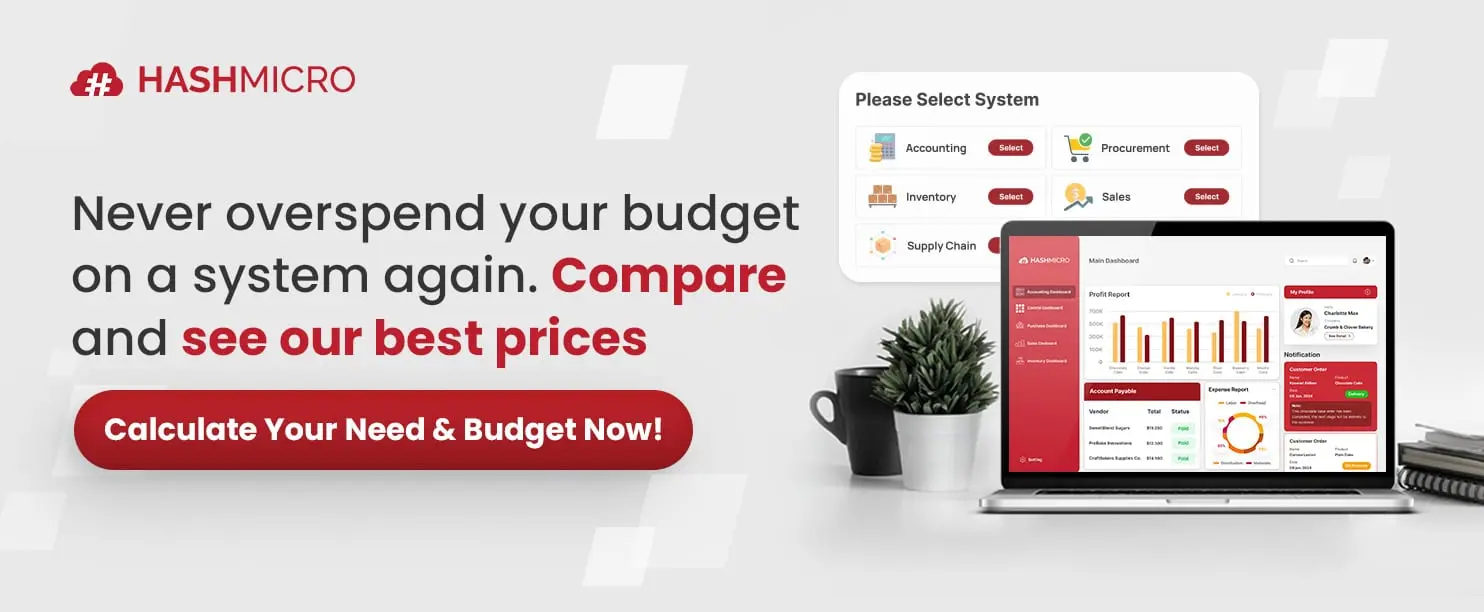Managing engineering projects can be complex, with challenges in workflow coordination, resource tracking, and meeting deadlines. That’s why ERP software for engineering streamlines these processes by integrating all operations into a single platform.
An ERP system for engineering enhances efficiency, improves collaboration, and optimizes resource management. It automates repetitive tasks, provides real-time insights, and reduces the risk of errors, ultimately leading to the successful completion of projects on time and within budget.
Are you interested in learning more about it? Explore the top 10 ERP software solutions for engineering companies in Malaysia to discover how they can streamline your operations and improve project management.

Key Takeaways
|
What is ERP Software for Engineering?
ERP (Enterprise Resource Planning) software for engineering integrates various business processes such as project management, finance, procurement, and supply chain management into a single system.
It helps engineering firms streamline operations, improve resource allocation, and enhance collaboration across teams. ERP software enhances efficiency, minimizes errors, and enables firms to manage projects more effectively, ensuring timely delivery and cost control.
Engineered systems are primarily used by engineering firms, construction companies, manufacturers, and project-based organizations. These firms rely on ERP to manage large-scale projects, track resources, control costs, and coordinate across multiple departments.
Engineers, project managers, procurement teams, and finance departments all benefit from the integrated data and streamlined processes ERP provides, helping them stay on top of their project timelines and budgets.
Trends in ERP Software for Engineering Industry
Enterprise Resource Planning (ERP) systems are evolving rapidly to meet the unique demands of the engineering sector. Several key trends are shaping the future of engineering project management software, including:
- Cloud-based ERP adoption: Cloud ERP solutions offer scalability, flexibility, and cost-efficiency, with businesses transitioning to cloud platforms for remote access, automatic updates, and enhanced security.
- Integration of AI and ML: Artificial Intelligence (AI) and Machine Learning (ML) in ERP systems automate tasks, enhance predictive analytics, and optimize operations like inventory management and supply chain forecasting.
- Mobile accessibility and remote work support: ERP systems are now designed for mobile access, allowing engineering teams to work remotely and collaborate effectively from any location.
- Customization and modularization: The demand for customizable and modular ERP systems is rising, enabling engineering firms to tailor software to their specific needs.
- Integration with IoT and other technologies: ERP systems are integrating with Internet of Things (IoT) and other technologies to provide real-time data, improving asset tracking and operational efficiency.
- Emphasis on user experience (UX): Engineering firms seek ERP solutions that are intuitive, user-friendly, and require minimal training, enhancing adoption and productivity.
- Sustainability and ESG considerations: ERP systems increasingly support sustainability and Environmental, Social, and Governance (ESG) goals, helping firms manage resources, reduce waste, and comply with environmental regulations.
10 Best ERP Software for Engineering Companies in Malaysia
When choosing ERP software for engineering companies in Malaysia, it’s crucial to consider solutions that cater specifically to the unique needs of the industry. Below are the top 10 ERP software options that help engineering firms optimize their operations and stay competitive.
1. HashMicro ERP Software for Engineering
HashMicro ERP Software for Engineering is the ideal solution in Malaysia for streamlining your engineering processes. Trusted by over 2,000 enterprises across Southeast Asia, HashMicro offers a comprehensive system that helps resolve scheduling conflicts, miscalculated material quantities, and missed change orders.
HashMicro’s prominent features include:
- Project management system: It features a dashboard, cost and budgeting management, timesheet and invoice management, task tracking, Gantt Chart, S-Curve reporting, and customizable report templates.
- Manufacturing system: It offers production planning, bill of material calculation, work center management, Gantt Chart planning, work-in-progress tracking, and OEE optimization.
- Procurement system: This feature manages purchase orders, tenders, vendor portals, work orders, payment milestones, vendor ratings, and accurate procurement reporting.
- Fleet management system: This feature handles fleet database management, GPS tracking, service alerts, depreciation, maintenance requests, and fuel usage.
- HRM system: This feature includes assigning workers by project, skill, and availability, tracking certifications, safety training, and renewal schedules, as well as monitoring overtime, shift scheduling, and labor allocation costs.
- Accounting system: It offers a financial dashboard, profit tracking, asset depreciation, budgeting, accrual and amortization calculations, cash flow prediction, and accurate reporting.
| Pros | Cons |
|
|
Are you interested in implementing HashMicro ERP Software for Engineering for your business? Click the banner below to explore available pricing options.

2. Unit4
Unit4 offers a cloud-based ERP system for engineering firms designed to enhance productivity and collaboration for engineering-focused organizations. It provides advanced tools to manage project planning, engineering workflows, and resource allocation, allowing teams to focus on delivering high-quality results.
Unit4’s prominent features include:
- Project management: This feature enables businesses to plan, track, and manage project tasks, timelines, and resources, ensuring efficient project execution.
- Procurement management: It streamlines the process of acquiring goods and services, including supplier selection, order placement, and inventory tracking.
- Financial management: This feature enables businesses to handle accounting, budgeting, and financial reporting, ensuring accurate financial records and better control over resources.
| Pros | Cons |
|
|
3. Deltek Engineering Resource Planning Tools
Deltek is an ERP software for engineering industry designed for project-based businesses, including engineering firms. It offers industry-specific features that cater to the unique needs of various sectors.
Deltek’s prominent features include:
- Project management: This feature helps plan, organize, and track project tasks, milestones, and deliverables, ensuring projects stay on schedule and within scope.
- Financial management: It manages budgets, tracks expenses, and ensures accurate financial reporting, allowing businesses to maintain control over project costs and resources.
- Resource planning: This feature helps allocate and manage resources such as labor, equipment, and materials, ensuring they are utilized efficiently across projects.
| Pros | Cons |
|
|
4. Procore ERP Systems for Engineering Firms
Procore is an ERP system for engineering construction management that centralizes project control from planning to closeout, helping track progress, manage finances, reduce risk, and improve collaboration between office teams, field teams, vendors, and suppliers.
Procore’s prominent features include:
- Workflow management: This feature helps organize and streamline business processes by defining tasks, setting timelines, and ensuring smooth transitions between different stages of a project.
- Task progress tracking: It allows users to monitor the completion of individual tasks, providing updates on status and ensuring that deadlines are met and resources are used effectively.
- Job management: This feature oversees the allocation and coordination of tasks to workers or teams, helping manage job roles, assignments, and workloads for optimal efficiency.
| Pros | Cons |
|
|
5. Genius ERP
Genius ERP is designed for custom manufacturers, offering tools for estimating, scheduling, inventory control, and production planning. It integrates engineering and manufacturing workflows, ensuring precise project execution.
Genius ERP’s prominent features include:
- Smart scheduling: This feature enables businesses to plan and organize production schedules efficiently, ensuring that resources are allocated effectively and deadlines are met.
- Inventory management: It allows businesses to track and manage stock levels, helping to prevent shortages or excess inventory by providing real-time data on stock availability.
- Job costing: It enables businesses to track the costs associated with each project or production job, including materials, labor, and overhead, ensuring accurate budgeting and financial control.
| Pros | Cons |
|
|
6. MRPeasy Engineering Resource Planning Tools
MRPeasy is an ERP software for engineering industry for small to medium-sized manufacturers. It features production planning, work order tracking, resource allocation, quality control, and MRP for efficient production planning.
MRPeasy’s prominent features include:
- Procurement tools: These tools streamline the purchasing process by automating order creation, supplier selection, and inventory tracking.
- CRM sales management: This feature enables the management of customer relationships, tracking of sales activities, and monitoring of leads and pipelines.
- Purchasing management: It oversees procurement tasks, including order placement, supplier management, and invoice handling, ensuring organized purchasing workflows.
| Pros | Cons |
|
|
7. eresource ERP Systems for Engineering Firms
eresource is a zero-code ERP solution designed to streamline business processes with fast implementation. The platform enables easy customization without requiring technical knowledge, offering robust project management tools and real-time visibility into project progress, resource utilization, and financial performance.
eresource’s prominent features include:
- Manufacturing: This module helps manage production workflows, including inventory control, production scheduling, and quality management, ensuring efficient manufacturing processes.
- Procurement: The procurement module streamlines the purchasing process by managing supplier relationships, placing orders, and tracking inventory to ensure timely and cost-effective acquisitions.
- Rental management: This feature enables businesses to effectively manage rental assets, including tracking inventory, scheduling, and handling customer agreements, thereby ensuring efficient asset utilization.
| Pros | Cons |
|
|
8. Total ETO ERP Systems For Engineering Firms
Total ETO is an engineering resource planning tool designed for Engineer-to-Order (ETO) manufacturers, enhancing operational accuracy, efficiency, and profitability. This structure enables the early sourcing of long-lead items without waiting for the full project design to be completed.
Total ETO’s prominent features include:
- Project management capabilities: This feature allows businesses to organize, plan, and track project workflows.
- Reporting metrics: The software provides detailed metrics and reports at each stage of the project, offering insights into progress, performance, and potential issues.
- Efficient procurement processes: This feature streamlines procurement by connecting information across departments, from engineering to receiving and the shop floor.
| Pros | Cons |
|
|
9. Adeaca Engineering Resource Planning Tools
Adeaca is an ERP software for engineering companies that centralizes all project data on a single platform, providing real-time control and enabling efficient, dynamic management for project-driven businesses.
Adeaca’s prominent features include:
- Project financials and cost management: This feature helps businesses track and manage project budgets, monitor expenditures, and ensure financial accuracy throughout the project lifecycle.
- Project schedule and operations: It allows businesses to plan, track, and adjust project timelines, ensuring tasks and milestones are completed according to the schedule.
- Project insight and business intelligence: This feature provides data-driven insights and analytics, helping businesses assess project performance and make informed decisions based on real-time data.
| Pros | Cons |
|
|
10. Boond Manager ERP Systems For Engineering Firms
Boond Manager is an engineering project automation software that includes features such as recruitment, prospecting, project management, timesheets, expenses, invoicing, and purchasing. It serves as an intuitive and collaborative platform, streamlining and efficiently managing business operations.
Boond Manager’s prominent features include:
- Centralized CRM: This feature enables businesses to manage all customer data in one centralized location, including contact information, interactions, and sales history, for improved relationship management.
- Timesheets and expenses management: It simplifies the tracking of employee hours and company expenses, ensuring accurate records for payroll and budgeting purposes.
- Real-time reporting: This feature provides up-to-the-minute data on various business metrics, helping businesses monitor performance and make informed decisions based on current information.
| Pros | Cons |
|
|
Why You Should Use Engineering Project Automation Software in Your Business
Engineering project automation helps businesses streamline workflows and improve accuracy across operations. Within an ERP environment, specialised manufacturing engineering software enables engineering teams to connect project planning, production data, and resources more efficiently.
- Streamlines project management: Automates repetitive tasks, reducing manual work and improving workflow efficiency.
- Reduces errors: Automates processes to minimize human errors, ensuring more accurate project execution.
- Increases efficiency: Speeds up tasks and optimizes resource allocation, helping you complete projects on time.
- Provides real-time insights: Offers actionable data and analytics, enabling better decision-making.
- Enhances team collaboration: Integrates workflows across teams, improving communication and collaboration.
- Lowers costs: Reduces operational costs by eliminating inefficiencies and manual processes.
Conclusion
ERP software for engineering helps streamline project management, resource allocation, and collaboration, ensuring efficient workflows and on-time project delivery. It integrates various business functions, providing real-time data for better decision-making and minimizing errors.
HashMicro ERP Software for Engineering offers a comprehensive solution tailored to the needs of engineering firms. It simplifies complex processes, optimizes resource management, and improves overall project efficiency, empowering businesses to meet their goals.
To experience the benefits firsthand, try HashMicro ERP Software for Engineering with a free demo today. Discover its features and see how it can enhance your business operations.

Frequently Asked Questions About ERP Software for Engineering
-
What is the difference between ERP and MRP in software engineering?
ERP (Enterprise Resource Planning) and MRP (Material Requirements Planning) are both software systems designed to enhance business operations and streamline processes. MRP focuses solely on manufacturing, helping manage materials and production schedules, while ERP provides a broader solution that integrates various functions across the entire business, including supply chain management.
-
Which software is commonly used in engineering?
Engineers rely on CAD (Computer-Aided Design) software for designing everything from mechanical parts to buildings and circuits. Popular CAD tools include AutoCAD, SolidWorks, CATIA, and Fusion 360.
-
How does ERP software benefit engineering firms?
ERP software improves project management, optimizes resource allocation, and integrates functions such as finance and procurement. It helps reduce errors, boost efficiency, and ensures projects are completed on time and within budget.


































